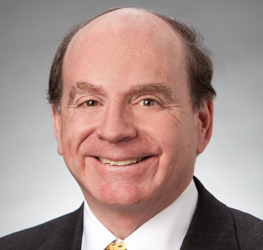Direct Provider Contract Alternative Payment Model – CMS/CMMI Issues Request for Information

On April 23, 2018, the Center for Medicare and Medicaid Innovation issued a Request for Information (the RFI) on a direct provider contracting model for primary care. The RFI seeks input on how direct provider contracting between the Centers for Medicare and Medicaid Services (CMS) and physicians or physician group practices may be designed and how the model may be used to reduce governmental expenditures while enhancing quality of care. CMS has set a deadline of 11:59 EDT on May 25, 2018 to provide comments.
As an RFI, the proposed direct contracting model is short on details. Rather, CMS is seeking input from stakeholders to shape a new model that will focus on a direct contract between CMS and participating providers, principally for primary care services. As described, beneficiaries would voluntarily elect to participate and receive services from the contracted primary care physicians or physician group. CMS suggests the goals of the direct contract model are (1) to enhance access to physicians for beneficiaries; (2) to reduce administrative burden on providers around billing for services; and (3) to set a revenue stream that would be designed to provide more provider flexibility in caring for patients.
As a possible example of how the model may work, CMS describes that it could contract with participating practices to have the practice serve as the main source of care for services ranging from solely primary care to a wider range of professional services for beneficiaries who voluntarily chose the model. CMS could pay the participating practices a fixed per beneficiary per month fee to cover the primary care services the practices provide. The practices may also have the opportunity to earn performance-based incentives for total cost of care and quality. CMS also could include ways to reduce the administrative burden by adjusting the claims submission processes for services covered under the per beneficiary per month fee. The goal would be to create a model distinct from the existing Comprehensive Primary Care Plus (CPC+) and Accountable Care Organization (ACO) initiatives.
As part of the RFI, CMS requests those interested in such a model and its potential design to provide comments on specific questions, as well as offer comments on other issues. Among the questions are:
- How can a direct provider contracting model be designed to attract participation in a wide variety of practices?
- What features should practices be required to have to be eligible participants? Use of certified EHR technology was a suggestion.
- What support and data would practices need from CMS to participate?
- What State Medicaid authorities have implemented such a direct contracting program and how have such programs been designed?
- Given the free choice of providers that Medicare beneficiaries have, should there be limits under a direct contract modeling allowing beneficiaries flexibility to opt in and/or opt out from participation in the model?
- What support do practices need to enroll patients in such a model and what is an appropriate ramp-up time?
- How should Part B beneficiary cost-sharing requirements be modified in a direct contracting model?
- If CMS pays a per beneficiary per month payment what Medicare covered services, supplies, tests, etc. should be included in such payment?
- What types of risk adjustments should be included?
- How can the model be structured to allow practices of varying sizes to be participants? What types of financial safeguards should be built-in?
- Should the participating practices be at risk financially and, if so, for what services? How should the level of risk be determined?
- What other payment structures should be included?
- What data will CMS need to collect from model participants and how can CMS gather such data without being too burdensome?
- Are there examples of commercial direct contracting models CMS should consider?
- What safeguards are needed to ensure that participants do not stint on needed care?
- What safeguards are needed to ensure that beneficiaries are not unduly influenced in where they receive care?
- What protections are needed to protect practices from “cherry picking” healthy beneficiaries to participate?
- What safeguards are needed to ensure that the model does not negatively affect the quality of care, program costs or competition?
- What should CMS do to protect privacy and data security?
- How can existing ACO initiatives be strengthened to address some of the goals of the direct contracting model?
The RFI for the direct contracting model indicates the Trump administration remains committed to testing alternative payment models. It also reflects that CMS is willing to listen to independent stakeholders as it designs models to test. The direct provider contracting model also presents an opportunity for interested practices to provide input into an innovative new alternative payment initiative.
For more information on Foley’s Health Care Practice , including the team, publications, and other materials, visit Foley’s Health Care Industry Team.
